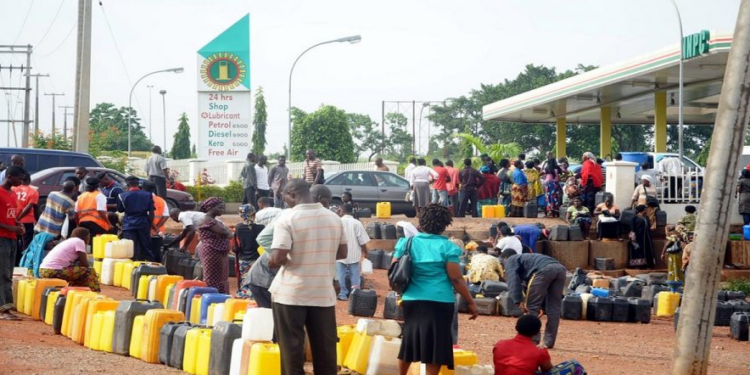A review of petrol stations in Abuja over the weekend revealed that demand for the commodity has slowed as many Nigerians have chosen not to purchase petrol for their vehicles.
According to the review done by Nairametrics, these are some of the trends that unfolded in the Federal Capital Territory (FCT) over the weekend:
More petrol stations shut down
Petrol stations owned by independent marketers have shut down across the city.
Another dimension to this is, aside from retail stations owned by the Nigerian National Petroleum Company Limited, several other stations owned by marketers are open for business however, many of them are not dispensing fuel from all their pumps, which makes petrol queues unavoidable. But even the queues are not as lengthy as they used to be.
A source at the Independent Marketers Association of Nigeria (IPMAN) told Nairametrics that since NNPCL went back to being the sole importer of petrol into the country, marketers have found it difficult to get the commodity because of forex volatility, so, there is bound to be a gap in supply as many marketers do not have petrol and cannot even look forward to getting supplies from NNPCL because the latter are also overstretched.
Less demand for petrol
Some residents of the Federal Capital Territory in Nigeria spoke to Nairametrics about their growing dissatisfaction with queuing for petrol, citing the excessive stress and high costs as deterrents.
Over the past weekend, several individuals revealed their reluctance to endure long queues, especially given the current high fuel prices.
According to them, opting for public transportation and paying twice the usual fare is a more viable option compared to the inconvenience and expense of queuing to buy fuel at exorbitant rates, ranging from N615 to N620 per litre.
Ediri Thomas, emphasized the frustration and impracticality of queuing for petrol, leading him to make a conscious decision to park his car temporarily. Instead, he has opted for public transportation and walking to meet his daily commute needs.
- “When petrol was N185 per litre, at least after queueing I could fill up my tank conveniently, but I wouldn’t dream of doing that now,” he said.
Ride-hailing app drivers are taking their business offline
Another noticeable trend observed by Nairametrics is the unavailability of petrol in Abuja which has led ride-hailing taxi drivers to resort to offline business operations.
This unusual shift occurs after a customer has booked a ride through the company’s app.
In this situation, certain drivers request customers to conduct the transaction offline.
They do this to secure immediate cash, enabling them to purchase fuel promptly either from designated NNPCL petrol stations or from other stations.
This practice is particularly common among drivers who anticipate the possibility of earning more from the ride. The demand for ride-hailing taxis has increased significantly as a result of urban residents opting to leave their cars parked at home.












